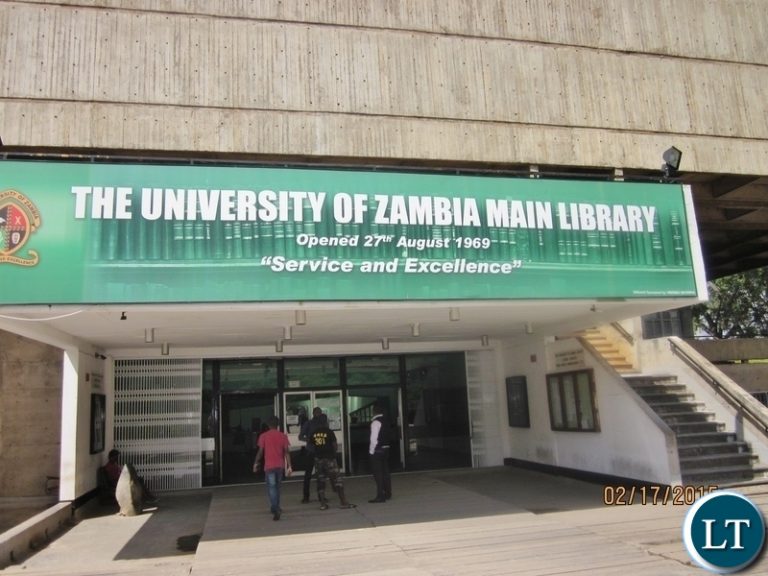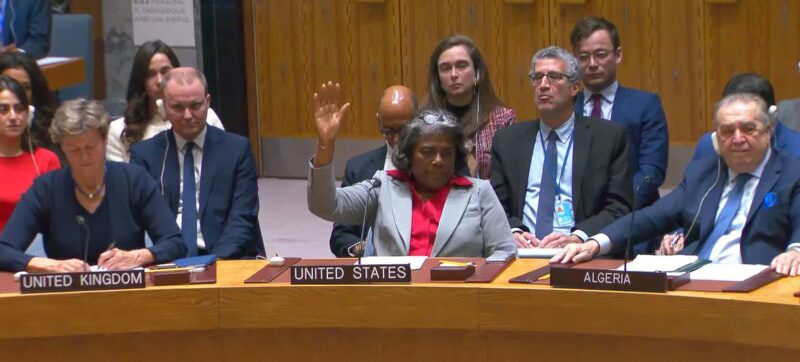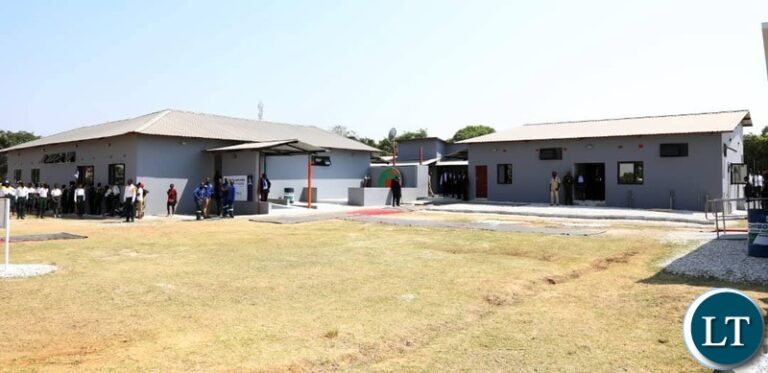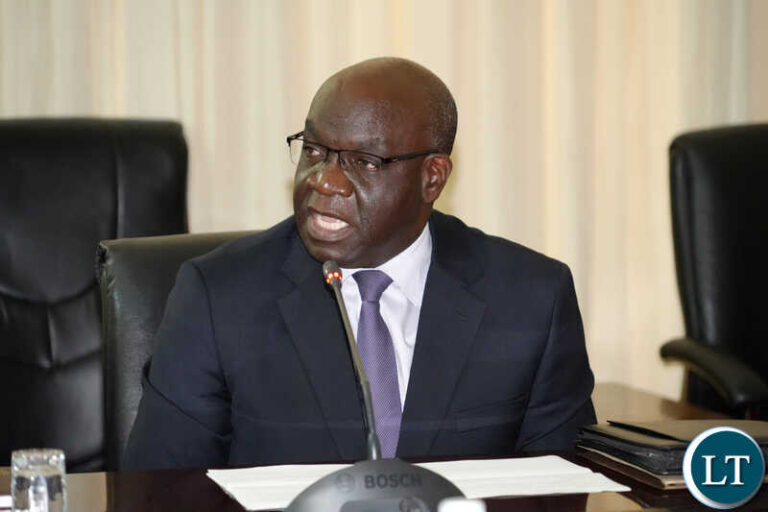By Field Ruwe EdD
I beg you all UNZA students be persuaded that no one is more passionate than me to see you turn our beloved country into a most prosperous nation. Please be reassured that my intentions are purely noble and are not aimed at undermining your intelligence or yourself-esteem as you strive to become Zambia’s erudite human capital.
Believe me I dedicated my degree to the improvement of tertiary education in Zambia because I have since learned that those who lack personal achievement tend to resort to embracing nationalistic sentiments in order to compensate for their own inadequacies. They passionately defend their country’s shortcomings to artificially bolster their false sense of commitment to nation building.
I mean good. The greatest pleasure in me is doing things people say I can’t do. Look, if it weren’t for me, the discourse on the quality of the UNZA degrees would not have arisen. Come with me, we can transform the University of Zambia into an even more exemplary institution of higher learning. Please peruse the entirety of this article not like a person who lacks personal achievement, but like the academic student you are.
Why Chibale Avoided To Mention NARIC In His Press Release
Had the Vice Chancellor of the University of Zambia deployed Dr. Mfune and not Acting Head of Communication and Marketing Damaseke Chibale to defend the university, the uproar on inferior degrees would have concluded more amicably with efforts to find solutions. Chibale is a philistine who uses the generic cookie cutter template to categorically deny, tactfully shift blame, and brutally besmirch.
During an interview with Lusaka Star, Dr. Orleans Mfume, who is Higher Education Quality Assurance expert and lecturer at UNZA, elucidated the discrepancy between the UNZA degree and that of its UK counterpart, deeming it a technical hitch.
Dr. Mfume, posited that the perceived inferiority of the UNZA degree could be attributed to the absence of an A-Level certificate at secondary school level, as a prerequisite for university admission, like is the case in the UK where such a qualification is required for pursuing a Bachelor’s Degree. Dr. Mfume further stated; “For you to pursue a degree in Zambia you need O-Levels whilst in the UK system you need A-Levels.”
In the United Kingdom, students typically complete their A-Levels in Year 12 (Grade 12) and Year 13 (Grade 13) as part of their preparation for university. On the other hand, the Zambian education system does not have A-Levels as a separate qualification for university entrance. Instead, A-Levels are seamlessly integrated into the structured four-year Bachelor’s Degree program. It is here the technical hitch lies.
Since 1965, the University of Zambia first-year students have been spending one year disguised as Form 6 (Grade 13) secondary school students studying A-Levels, leaving them with only three years of the actual four-year degree. This arrangement ultimately diminishes the value of the degree to a diploma as evidenced by the UK and South African NARIC comparability systems.
This is what Acting Head of Communication and Marketing Damaseke Chibale did not want to divulge. Burdened by the apprehension of exposing this longstanding technical hitch embedded within the degree curriculum, he feared its repercussions.
How A-Levels Were Embedded In The UNZA Bachelor’s Degree
To explore the origins of this development, it is essential to delve into the historical background of Zambia’s Secondary School education system. In the 1880s, primary education for Africans was established by the French Protestant Mission in Barotseland. The commencement of secondary education for Africans was delayed until the inauguration of Munali Boys Secondary School in 1938, which initially enrolled 11 pupils.
By 1951, the number of African students in secondary schools had reached 405, according to J. Elliot in his publication “Education in Zambia: Quantitative Expansion at the Expense of Qualitative Improvement? At the time, secondary education was provided from Form 1 to Form 6.
Elliot notes that the inaugural Form 6 (A-Level) examination was completed by Munali Secondary School students in 1957, following its introduction in England and Wales six years prior (1951). Initially intended as subject-based qualifications essential for university entry, the A-Levels were later adopted across the Commonwealth.
In January 1964, the Emergency Development Plan (January-December 1964) was implemented by the then Prime Minister Kenneth Kaunda with the aim of expeditiously reforming the education system in Zambia. The plan sought to decolonize the curriculum in order to cater to the increasing needs of the nation.
The University of Zambia, founded in 1965, brought about significant alterations to the secondary education landscape. The revised secondary school curriculum included classes ranging from Form 1 to Form 5, and consisted two distinct cycles: the initial cycle spanned 2 years, while the subsequent cycle spanned 3 years. Upon completion of the five-year period, a student received an O-Level certificate.
Form 6, which provided A-Levels, was moved to the University of Zambia as a fundamental element of the comprehensive four-year Baccalaureate degree curriculum. The decision is perhaps one of the gravest errors made by the Kaunda government. The obligatory one-year A-Levels significantly impacted the Bachelor’s degree, essentially reducing its Bachelor’s course work to three years. Consequently, the UNZA Bachelor’s degree was also reduced to a diploma in the UK and South Africa.
What Then Is The Remedy?
Dr. Mfune assures the nation that the Higher Education Quality Assurance has already responded through the revised curriculum. To this he added; “Explicit in the new framework is the introduction of an A-Level certificate as the requirement to university education while the O-Level will be for college entry, thus at policy level, the technical hitch is already being fixed and this harmonizes our Higher Education system with both the UK and South Africa.”
Revisions by the Higher Education Quality Assurance stand as an affirmation that the University of Zambia’s Bachelor’s Degree has been inferior to that of the UK and the Commonwealth for 59 years. Once the modifications are effected, newly enrolled students will no longer endure an entire year imitating Form 6 students, but rather focus on their Bachelor’s Degree studies. And when they pursue further studies or employment abroad, they will be treated as equals. Viva UNZA!
The rights to this article belong to ZDI (Zambia Development Institute), a proposed US-based Zambian think tank. On May 19, 2022, a comprehensive proposal was delivered to President Hichilema through Principal Private Secretary Bradford Machila. Author, Dr. Field Ruwe holds a Doctor of Education in Organizational Leadership. He is affiliated with Northeastern University, Boston, MA. US.


















